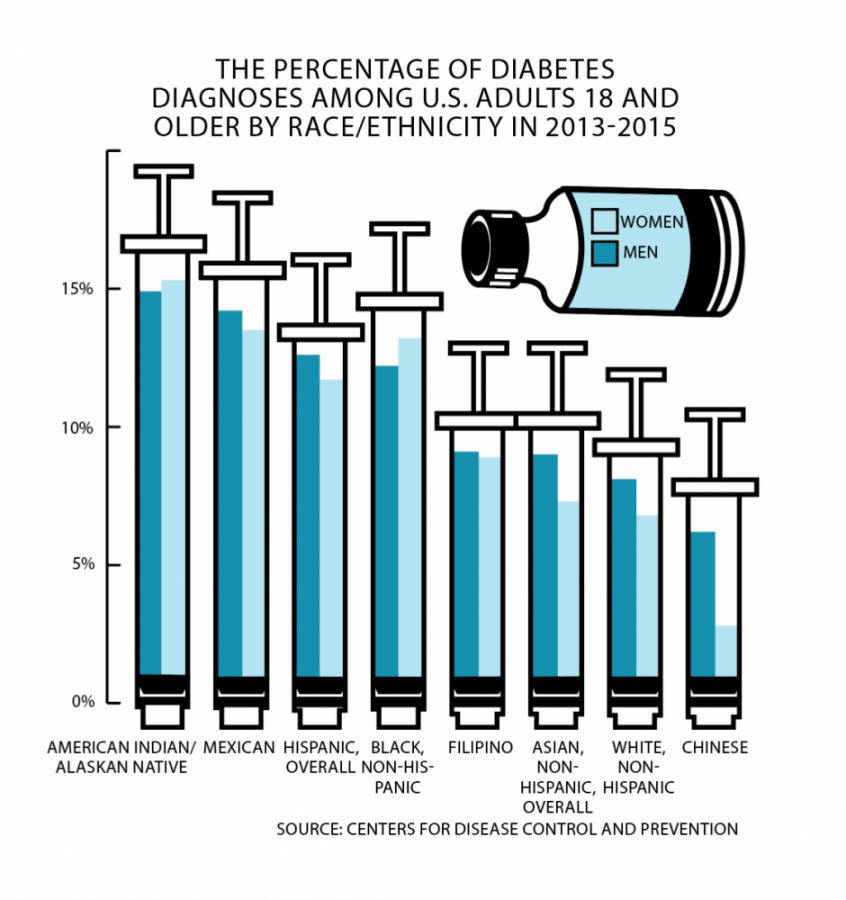The University of Minnesota recently received a grant from the Shakopee Mdewakanton Sioux Community to aid the school’s diabetes research.
The tribe gave $100,000 to a diabetes researcher at the University who is aiming to provide kidney and islet transplants without the need for anti-rejection drugs. While the research is not just tailored to diabetes in Native American communities, Natives and all individuals with diabetes will benefit.
Native Americans in particular have a greater chance of having diabetes than any other racial group in the United States, according to the Centers for Disease Control and Prevention. From 2013 to 2016, the number of deaths in Minnesota caused by diabetes increased by more than 100, according to the University of Minnesota Memory Keepers Medical Discovery Team.
The research will focus on people who have developed kidney failure. For these patients, dialysis or kidney transplantation are the only available treatments, said Bernhard Hering, the University diabetes researcher who received the grant. The lifespan prognosis for these individuals is poor, and kidney transplants are not always readily available and require lifelong medications which suppress the immune system to prevent rejection. Dialysis can also be a long and tiring process.
“Life-expectancy is the most impactful complication [of diabetes],” Hering said. “[Natives] haven’t been given the privilege of very good health care or education programs,” he said.
The research aims to create a treatment where these immune system-suppressing drugs are not required after kidney transplants. These medications are costly, and can also have adverse side effects, sometimes even resulting in cancer.

“Our focus is on improving outcomes and improving the safety of the treatment required to prevent kidney transplant rejection,” he said.
Diabetes in Native Americans is a sociocultural, environmental and public health problem, according to Tiffany Beckman, a University professor in the Department of Medicine, in an email.
Beckman is the first American Board of Internal Medicine certified American Indian endocrinologist in the world and is a member of the Leech Lake Band of Ojibwe.
Native Americans have a heightened genetic predisposition to Type 2 diabetes, have lost access to natural resources and do not have adequate access to care, she said.
“Diabetes resulted in [American] Indian people because of a loss of our language, land and our culture. Itʼs part of the continued genocide unfortunately,” Beckman said in an email.
The research has been ongoing for several years, but the recent funding will allow the researchers to expedite and continue their work.
“Native Americans are twice as likely to suffer from Type 2 diabetes than Caucasians. The University of Minnesota Schulze Diabetes Institute is leading the way with pioneering diabetes treatments and research – work that is crucial to these individuals and their families. Dr. Hering’s research to advance islet transplants in kidneys will improve the quality of life for many diabetes patients, and we are glad to support this important work,” said Charles Vig, the tribe’s chair, in a written statement to the Daily.
The Shakopee Mdewakanton Sioux Community has a long history with the University. Since 2007, the tribe has donated $17 million to the University, according to Sara Swenson, a spokesperson for the tribe. The tribe also created the Tribal Nations Plaza at TCF Bank Stadium.









